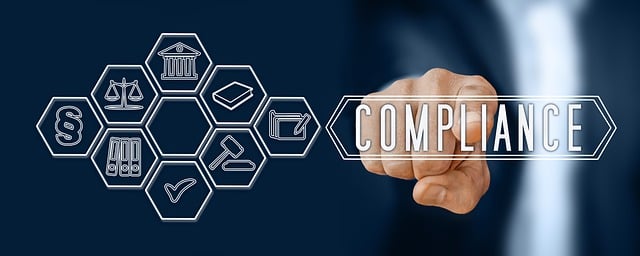Contempt of court involves willful failure to comply with court orders, with civil and criminal forms carrying severe penalties. Legal professionals play a critical role in guiding clients through these proceedings by providing strategic legal counsel, navigating complex laws, and ensuring confidentiality. Understanding one's rights, responsibilities, and the importance of open communication with lawyers is vital for fair treatment and protection against contempt charges. Effective communication bridges the gap between attorney-client secrecy and public court proceedings, fostering trust and enabling clients to actively participate in their defense.
In the intricate landscape of legal disputes, understanding and protecting client interests during contempt of court proceedings is paramount. This article delves into the nuanced world of contempt, exploring its definition and diverse types. It illuminates the pivotal role legal professionals play in safeguarding client rights and outlines strategic approaches to maintain confidentiality.
We dissect the rights and responsibilities of clients entangled in such cases, emphasizing effective communication as a key tool for navigating complexities. Armed with knowledge, both professionals and clients can ensure a fair process, ultimately fostering a robust and transparent justice system.
- Understanding Contempt of Court: Definition and Types
- The Role of Legal Professionals in Protecting Client Interests
- Strategies for Maintaining Confidentiality During Proceeding
- Rights and Responsibilities of Clients in Contempt Cases
- Effective Communication: Navigating Complexities with Clients
Understanding Contempt of Court: Definition and Types

Contempt of court is a legal concept that refers to the willful failure or refusal to comply with a court order or to disrupt the proper administration of justice. It’s a serious matter as it undermines the authority and integrity of the judiciary. There are two primary types: civil contempt and criminal contempt. Civil contempt occurs when an individual fails to abide by a court decree, such as not paying child support or failing to turn over property as ordered. In contrast, criminal contempt involves direct obstruction or disruption of judicial proceedings, like disrupting a trial or refusing to testify truthfully. Both types carry significant consequences, including fines and imprisonment, emphasizing the importance of understanding one’s obligations and the potential penalties for non-compliance.
The Role of Legal Professionals in Protecting Client Interests

Legal professionals play a pivotal role in protecting client interests during contempt proceedings. Their primary responsibility is to ensure their clients’ rights are upheld and that they receive fair representation. This involves a multi-faceted approach, including thorough legal research to understand the nuances of contempt of court laws and precedents, strategic planning to build a robust defense, and effective communication with the client to manage expectations.
Attorneys must be adept at navigating complex legal landscapes, interpreting evidence, and presenting compelling arguments in court. They act as advocates, shielding their clients from potential misconduct or errors that could compromise the case. By maintaining strict confidentiality and fostering an environment of trust, legal professionals empower their clients to openly discuss sensitive matters, thereby strengthening the overall defense strategy.
Strategies for Maintaining Confidentiality During Proceeding

In contempt proceedings, maintaining confidentiality is paramount to protect client interests and ensure a fair process. Lawyers should employ robust strategies to shield sensitive information, such as using secure communication channels, conducting proceedings in private, and obtaining protective orders from the court. These measures prevent public disclosure of confidential details, preserving the integrity of the case and the client’s privacy.
Additionally, legal professionals must educate clients on their obligations regarding confidentiality. This includes instructing them to avoid discussing case details openly and ensuring they understand the potential consequences of breaching privacy. By fostering a culture of discretion, lawyers can effectively safeguard client interests throughout contempt proceedings, upholding ethical standards and ensuring the integrity of the judicial process.
Rights and Responsibilities of Clients in Contempt Cases

In contempt proceedings, clients have rights and responsibilities that are crucial for ensuring a fair process and protecting their interests. One of the primary rights is to be represented by legal counsel, allowing them to navigate the complexities of the case and advocate effectively on their behalf. Clients must also actively participate in the process by providing relevant information, attending hearings, and adhering to any court orders. Transparency and honesty are paramount; clients should disclose all pertinent facts to their attorneys, ensuring a robust defense strategy.
Responsibly, clients are expected to respect the authority of the court and cooperate with legal professionals. This includes following instructions from their representatives, complying with pretrial orders, and maintaining a respectful demeanor during proceedings. By upholding these responsibilities, clients contribute to an efficient and just resolution, ultimately safeguarding their interests in the face of potential contempt charges.
Effective Communication: Navigating Complexities with Clients

Effective communication is a cornerstone in navigating the complexities of contempt of court proceedings. Lawyers must carefully explain legal concepts and procedures to clients, ensuring they understand their rights and responsibilities. This involves using clear, concise language and avoiding jargon as much as possible. Active listening is also crucial; lawyers should pay close attention to client concerns and ask clarifying questions to ensure full comprehension.
In a case of contempt, the interplay between attorney-client confidentiality and open court proceedings can be challenging. Lawyers must strike a delicate balance, providing adequate information to clients while maintaining the integrity of the legal process. Open dialogue helps build trust and ensures clients are prepared to actively participate in their defense, which is essential for achieving the best possible outcome.






